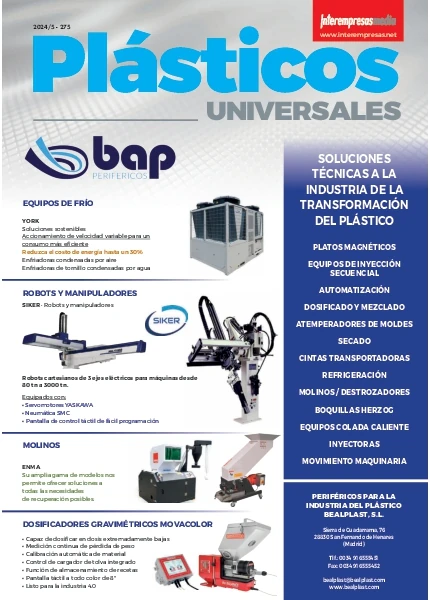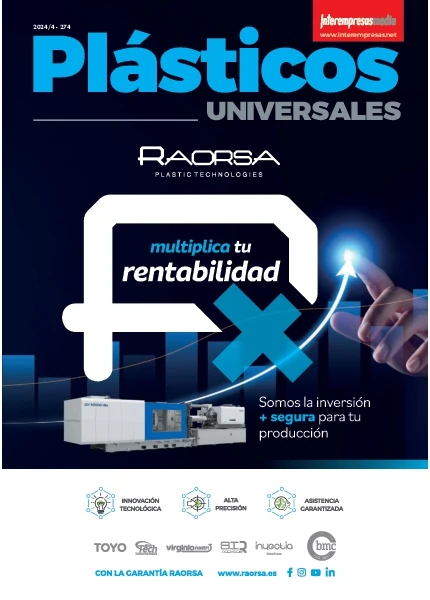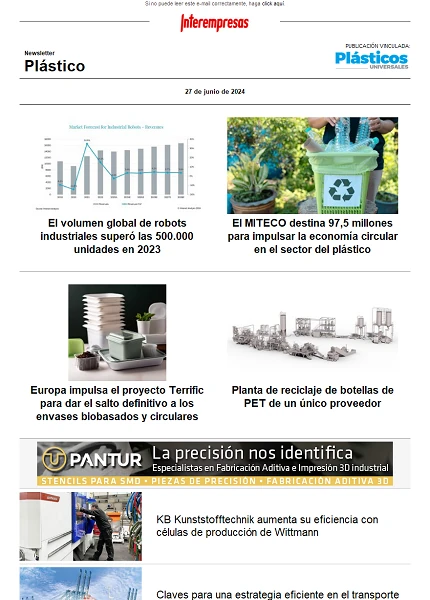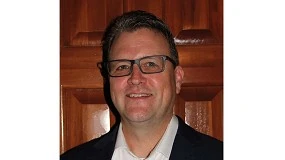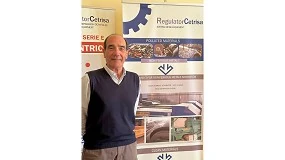Advantages of Rotary filtration system
Economy in filtration of molten mass of plastics
In practice, the second question always is the overlooked when elected and considers the specification of a new computer. This is especially the case when considering a line turnkey and when the provider of turnkey line selected filtration system. This means that it is often selected the cheapest system to be achieved, that barely meet the minimum specifications required. The cause is simple: the provider of a turnkey line does not have to operate the line and therefore the operating costs of the line are not their priority. The turnkey line provider will receive your payment when the line is operating within specified ranges and with the specified product quality.
For this reason, when planning to invest in a new line, it is worth for the future operator of the line early to consider the selection of an optimal filtration system to avoid expensive adjustments at a later stage.
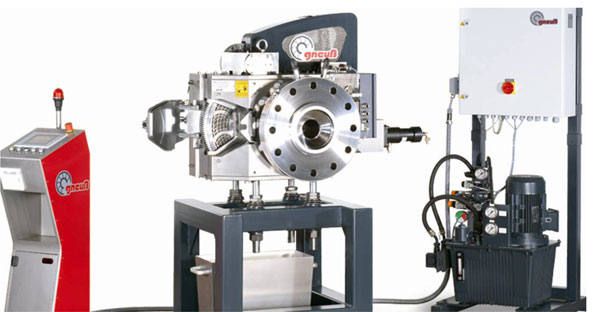
The economy of Rotary filtration of molten plastic masses
That the filtration system is - by a lot of different reasons - an important factor in the cost of the production process efficiency, is often rejected.
Compared to changing systems, Rotary filtration system represents a somewhat higher investment. However, in the medium-term represents the cheapest alternative. This is because - among other things - resulting from Rotary filtration system operating costs are well below the conventional mesh Exchange systems. In short, open more opportunities that could not be taken into account without Rotary filtration technology. Chart number 1 shows this point clearly.
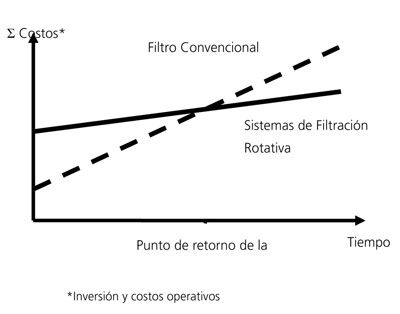
The influence of changing in the process of production
Most meshes changers cause considerable problems in the production process. This applies not only to the discontinuous systems (for example, changers mesh of simple piston sliding plate and filters simple type sailing) but also semicontinuos systems (changer of dual or multiple piston meshes, filters double type sailing).
The causes of these problems are diverse and depend on the type of dash of meshes or system of filtration in question. In the case of a double piston or multiple or mesh of sliding plate changers, active filtration area is reduced during the changes of meshes, or in the case of a simple filter type candle line must be stopped completely, even in the case of a double filter type sailing, the process varies in enfervorizada form while the polymer is diverted from blockade a 'pending' filter.
In addition, in sliding plates or nets piston changers, the polymer is degraded with the result that those burnt particles are introduced into the molten mass when moves the piston or the sliding plate, and thereforeintroduced contamination to the product during the turn of the mesh.
With the piston and the meshes of sliding plate changers and also filters type sailing, the increased differential pressure over time can lead to soften pollutants will be pushed through the filter medium. With sliding plate and piston changers, is particularly sensitive during mesh change something, because all the polymer must flow through an area much smaller that already has a dirty retort.
These problems in processes with conventional mesh changers often lead to interruptions in production or production of scrap or products 'outside degree' during and for some time later, having changed the mesh.
(La_consecuencia_de_esto_es,_que_costos_significativos_son_causados_por:_A) have to grind the material or (b)) from the loss of profits having to sell the material 'out degree' at a lower price or having to recycle it.
With the constant of the rotating system of filtration process, such problems are completely shunned and consequently offer considerable potential for savings.
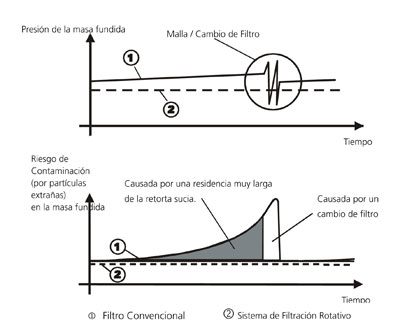
Example of a case:
An Asian pellets of internationally active ABS/SAN polymer manufacturer operated in the past with mesh semicontinuos1 changers. With these changers of meshes, it was necessary to shift to 'outside degree' output during and for approximately 15 to 20 minutes each time that it changed the mesh. This material was liquidated at a very low price. The output of the line range is up to 11,000 kg/h. Therefore, the maximum range of output, 2,750 kg of material 'out of degree' by change of mesh, which should be paid to the value of cost (no profit). With the exchanger of double-piston mesh, were necessary until 3 changes of meshes per day, so 'out of grade' total was up to 8,250 daily kg.
These meshes changers have been replaced with rotary filtration Gneuss (RSFgenius) system. 'Outside degree' problem was completely solved and the quality of the product was improved at the same time, due to that small variations in colour caused by the different values average statistics, resulting from the variations of pressure of the changer of meshes of double-pistonthey were completely averted.
Finer filtration and/or (increased) use of recycled materials
Users of conventional mesh changers know that each mesh change leads to problems in the final product. For this reason, will generally try to increase the change of a mesh to the other as far possible or delay the change of mesh to the next stop of production planned - for example the change of a head. This extension of time between the mesh changes can be accomplished by two factors:
- A thicker filtration
- Raw cleaner.
Both factors will have a negative impact on the efficiency of cost of the production process. A thicker filtration will lead to the reduction in the quality of the finished product and raw cleaner will be more expensive raw material.
The consequence of the constant of the rotating system of filtration process is that quality products can be manufactured using cheaper raw material (for example remolido/recycled material).
Because filters changes have no effect on the process, the production of the extrusion line program does not need to be planned according to these changes.
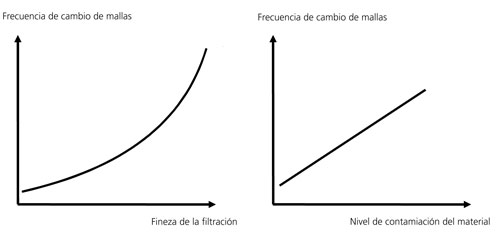
Example of a case:
A European manufacturer of PET sheet for thermoforming of high quality with a thickness of little tolerance operated with a discontinuous mesh changer. Due to the serious problems during the changes of meshes, it was not possible to use flakes of PET bottles.
The conversion of the line with a RSFgenius made it possible to use up to 100% of PET bottle flakes. The process continues without any problem even during the change of the filter elements. The output of the line is 1,000 kg/h. The price of the PET bottle flakes is around 50 to 70% the price of Virgin material so that the investment was recovered in a very short period.
Loss by standard in self cleaning filtration systems
Meshes with standard changers are often used with highly contaminated materials. With these units, a certain amount of material is used to clean the filter elements. This material is lost. The amount of polymer used for standard varies a lot depending on the mesh changer ' self-cleaning ' design. The material lost with the standard is a cost factor particularly important for the efficiency of cost of the process, especially when more expensive as the PET or PA (Nylon) materials are processed.
The patented backflush system of the RSFgenius offers an efficiency of standard higher than conventional standard mesh changers, which simply divert some of the polymer through the reverse side of the filter elements.
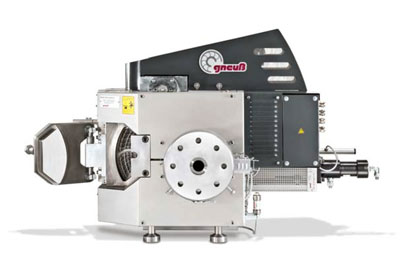
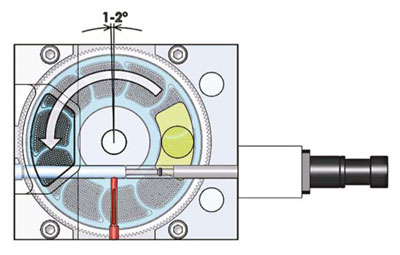
The RSFgenius purge the filter elements in an integrated manner. A piston of standard (patented) just before the filter element is reintroduced in the main flow of molten mass. Molten polymer filtering in the block of output through a piston is removed. The piston then accelerates the polymer and provides a pulse of high pressure, 'shot' of polymer which is injected through the reverse side of the element filter and subsequently, to the outside. The amount of material that is used for this cleaning cycle is freely adjustable and in practice usually goes between the 0.01 and 0.5% (with highly contaminated material) of the output range of production.
Injection of 'shooting' speed and therefore the pressure of cleaning is adjustable and controlled automatically during the process. Automatic self-cleaning process takes place without any interference in the production process.
Example of a case:
An internationally active manufacturer of strapping for packaging of PET from bottle flakes, originally operated with changers of meshes with semi-continuos autolavado in several of its plants prior to equip these lines with the RSFgenius.
In semicontinuos mesh changers with autolavado, the variation of the processes caused by the autolavado made changes of mesh during production impossible.
As a result, only a limited proportion of the raw material could be replaced with flakes of PET bottles.
Thanks to the RSFgenius with its permanent and complete process of constant operation, this restriction does not exist more and consequently up to 100% bottle flakes can be used with its corresponding positive effect on the costs of the material.
Cost of the filter elements (MeSH)
Enable the filter elements or packages of nets do not become a cost factor, the selection of a ' self-cleaning ' meshes changer that allows to the repeated use of the filter elements could be the most economical solution. Often, the investment costs are higher, but - thanks to the low cost of the filter elements - the return of investment is short.
In order to obtain the best possible use of the filter elements, the easy-clean finish system efficiency and the optimal configuration of the filter elements are important. ' Self-cleaning ' RSFgenius system, as described above, it is also advantageous with regard to the ability to reuse of the filter elements and provides a high level of efficiency.
![F z ine of the m to lla s [μm] F z ine of the m to lla s [μm]](https://img.interempresas.net/fotos/351864.JPEG)
Influence of changes in processing, manufacturing tolerances
Processing problems caused during changing often have a negative effect in the dimensional tolerances of the finished product.
Conditions of operation with continuous process provided by the RSFgenius usually offers the opportunity of (compared to conventional mesh changers), be able to function with very fair tolerances. The graph below shows the effect it can have in the production process
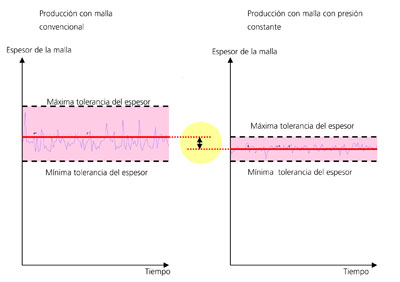
In the case shown here, the client has a specified minimum and maximum acceptable thickness of mesh. As with the RSFgenius production can be maintained in a constant process, can achieve a finer average thickness, which leads to significant savings in raw material.
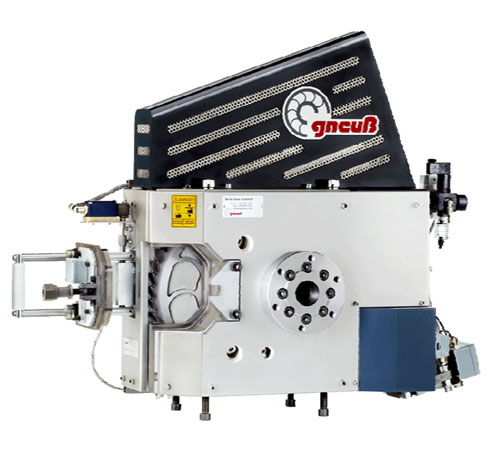
Example of a case:
A manufacturer of barrier film (PE) has several lines equipped with rotary filtration system SFXmagnus. The process of constant operation provided by this system made it possible to reduce the thickness of the average film in 4%.
With an average output of 1,000 kg/h, it was possible to save 300 tons of raw material per year.
Summary
Filtration systems can decisively influence the economy of a production process. When considering the purchase of a new extrusion line, it is important to consider carefully what filtration system is the best to the process of production in question. The system offered by the provider of a turnkey line on the one hand, must comply with the minimum technical requirements but on the other, is not often the most economical solution.


